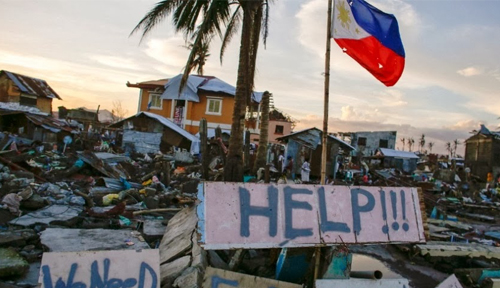Disaster Preparedness and Management: How CHP Cebu Can Help in the Effort
Philippines, sadly, is one of the most disaster-prone areas in the world for a variety of reasons:
- We are found within the Pacific Ring of Fire, which means we are already vulnerable in two things: earthquakes and volcano eruptions. One of the most significant, the eruption of Mount Pinatubo, was so catastrophic it changed climate temperature.
- Many of the towns are found in low-lying areas. As climate change and global warming increase the level of water, these areas are threatened by floods and even disappearance.
- A lot of the Filipinos are poor. In the first six months of 2012, about 28 percent were already in the poverty line with many earning only 16,000 pesos a year or less than 2,000 pesos a month.
But one of the biggest reasons is our lack of disaster preparation and management.
The truth about natural disasters is this: nothing can stop them from happening. No one can change weather patterns in the Pacific Ocean or stop the movements of the tectonic plates. However, the impact of these disasters can be mitigated if there’s only careful and advanced planning and training.
To promote this line of thinking, the Philippines has enacted Republic Act 10121 otherwise known as Philippine Disaster Risk Reduction and Management Act of 2010.
One of its provisions is to require local government units (LGUs) to allocate 5 percent of its expected revenues from regular sources as a calamity or disaster fund. The amount is then divided into two: 70 percent is for equipment, preparedness, response, recovery, and rehabilitation while 30 percent is for quick response (or standby fund).
A 5 percent allocation sounds small, but considering that cities may earn in billions or hundreds of millions, it means that a calamity fund may be worth millions as well. Nevertheless, money is still a finite resource, which should be used wisely.
Here’s How CHP Cebu Can Help
The Center for Healthcare Professions (CHP) Cebu can be a strategic partner for these LGUs in disaster preparedness and management by doing what we do best, and that is to train people. CHP offers a variety of courses that can be extremely helpful in times of natural disasters such as:
- Emergency Medical Services
- Barangay Health Services
- Health Care Services
- Pharmacy Services
- Licensed Practical Nursing
By taking these courses from CHP Cebu, LGUs can now:
- Augment their number of volunteers and personnel, who have the competency and skill to help save lives in times of disasters
- Tap their own local manpower to save costs and speed up disaster response and recovery
- Make more people proactive when it comes to disaster preparedness
- Use these professionals to disseminate more information about how to prepare in times of disaster
- Have more health care professionals ready especially since natural disasters can also increase the risk of injury and disease
LGUs and CHP Cebu can also work together to identify people who are more ideal to be trained for a specific course. This person may then be further taught to provide at least basic training to the rest of the members of the community.
When it comes to disaster preparedness and management, it’s a team effort. We at CHP Cebu would like to be part of that team.




Leave a Reply
Want to join the discussion?Feel free to contribute!